How to arrange heating a private house without gas - 7 alternative ways to heat
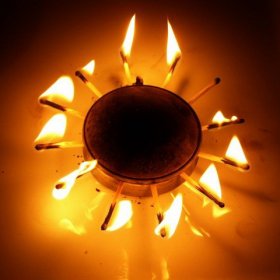
Unfortunately, even in the long-lived and quite “civilized” regions it is not always possible to connect to a centralized gas main, and therefore the question of how to organize heating without gas in a private house is quite relevant for many developers. Consider the most popular options, their strengths and weaknesses.
Content
Stoves and fireplaces - a tribute to tradition
Stoves are one of the oldest ways to heat a house, and they are successfully used today where there is no gas, but there is an opportunity to get hold of inexpensive firewood and coal.
Their closest relative, the fireplace, increasingly performs a decorative function, but the stove as a heating device has not lost its relevance, especially if it is planned to heat without gas and electricity. Here are the benefits of this system:
- The costs of building a furnace and its maintenance are not too high.
- Affordable fuel is abundant in most of the country.
- The stove and fireplace fit perfectly into the "traditional" design, organically feel in the country interior, give the room coziness.
The disadvantages include difficulties in operation: the stove in the cold season must be heated every day (sometimes more than once), the chimney requires periodic cleaning. Unpleasant moments include the risk of carbon monoxide poisoning, high fire hazard and the large dimensions of this building, soot and cinder, which eventually settle on the walls and furniture, as well as uneven heating of the room.
Our next article provides step-by-step instructions for laying a brick kiln:https://aquatech.tomathouse.com/en/otoplenie/kirpichnye-pechi-svoimi-rukami-sekrety-remesla.html.
Solid fuel boilers: firewood, coal, pellets
Firewood and coal are used as fuel not only in stoves, but also in solid fuel boilers of various types. In addition to them, wood chips, sawdust, straw, pellets are used. The latter type of “fuel”, due to its environmental friendliness, is becoming increasingly popular both abroad and here and represents granules (capsules) from compressed wood residues.
As a result of fuel combustion, water is heated, which circulates in the heating system, due to this, the premises are heated. Such a system is quite safe and effective, but laborious operation nullifies this advantage: multiple loading of fuel, regular cleaning of the combustion chamber, etc. - all these are unpleasant and tedious procedures.
Now solid fuel boilers are becoming more convenient: so many opt for boilers with automatic fuel supply, which are loaded every few days, or on pyrolysis boilers, which have an unusually high efficiency.
Solid fuel boilers with automatic fuel supply, according to experts, are one of the best options to "arrange" the heating of a private house without gas.
Fuel oil boilers: efficient and reliable
In terms of performance and characteristics, liquid fuel boilers are very close to gas boilers, a significant difference is only in the cost and type of fuel that they use for them: fuel oil, diesel fuel (diesel fuel or kerosene), less commonly rapeseed oil. Here are their most important features:
- Difficulties often arise in the delivery and storage of fuel, which is notable for its high cost and flammability.
- When using these boilers, there is a need for an additional room - a boiler room.
- Diesel boilers "went around" all the others in the emission of harmful substances into the atmosphere, in addition, they need high-quality protective automation.
- Liquid fuel boilers have an excellent indicator of efficiency.
With power up to 10 kW, for example, they can easily heat a house with an area of up to 100 m2, so they are suitable even for large buildings. There are hot water and steam boilers, most of them are compact and easy to install.
An overview of the boilers with a description of the principle of operation, models and characteristics can be found in our article:https://aquatech.tomathouse.com/en/otoplenie/kotly/kotly-otopleniya-na-zhidkom-toplive.html.
Electricity - A Worthy Alternative to Gas
Electric boilers can be used both as the main and as a backup source of heat. The second option is preferable, since the high cost of electricity makes this type of heating one of the most expensive. Their advantages:
- They are environmentally friendly and safe, can be installed directly in the living room.
- They are small in size and light enough.
- They are simply mounted and not capricious in operation.
The use of an electric boiler is possible only with reliable, modern electric networks and a sufficiently large allocated electric power in the house. So, for heating a modest cottage of 100 m2 a power of 10 kW is required, the larger the building, the higher the power requirements. Installation of a powerful boiler will require coordination with energy authorities.
Modern electric boilers allow you to establish effective heating of a wooden house without gas. Houses made of other materials require more "solid" equipment.
Compact, economical, durable and unpretentious modern electric convectors are becoming increasingly popular as heating appliances. Another option for additional heating is an electric heated floor.
Autonomous gasification: expensive pleasure
Heating with liquefied gas is just that option that needs to be considered in special, exceptional cases: not only is the fuel expensive in itself, it will also require installing a massive gas tank, the cost of which depends on its volume, in general, gasification costs can be quite significant.
You can, of course, use small cylinders for heating, but this is inconvenient for a number of reasons, especially in large houses in which they live permanently, and not from time to time. Thus, autonomous gas systems cannot be called a popular way of organizing heating.
Solar energy is one of the available alternatives.
As a complement to traditional methods of setting up heating without gas and firewood, solar collectors are increasingly being used, which are a device for converting solar energy into thermal energy and are used to transfer it to a heat carrier.
While solar systems are still very dependent on natural factors, and therefore not always effective, they have other disadvantages:
- the high cost of installing the system and its maintenance;
- high-quality and expensive insulation of the building will be required to reduce possible heat loss.
And yet, solar energy is one of the available and most promising alternatives, which is now not perceived as exotic.
Our next article presents recommendations for assembling a solar collector with your own hands:https://aquatech.tomathouse.com/en/otoplenie/alt_otoplenie/solnechnoe-otoplenie-chastnogo-doma.html.
Geothermal heating - “ecological” heat
One of the “fashionable” alternatives to traditional heating is the use of heat accumulated in the depths of the earth's surface. The system consists of a heat pump and a collector, which is located in the ground or under water.
Such a “design” pays off soon, but has a number of important advantages:
- geothermal energy is renewable and environmentally friendly;
- The system is highly efficient and durable.
This technology is already widely implemented abroad, but due to its high cost, it is rarely used here.
Of course, main gas today is the best option for organizing the heating of a private house, but we made sure that there are many other interesting options that can be used both in a complex and independently.
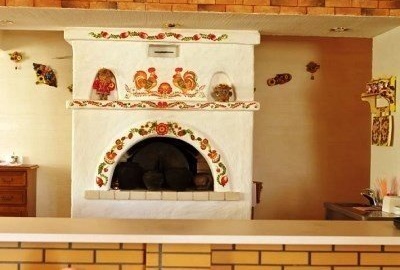
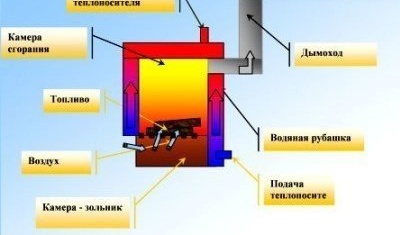
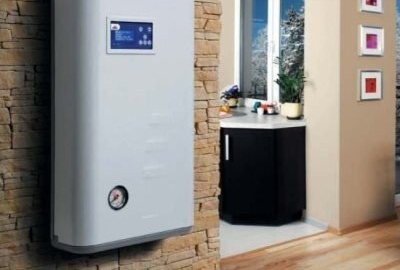
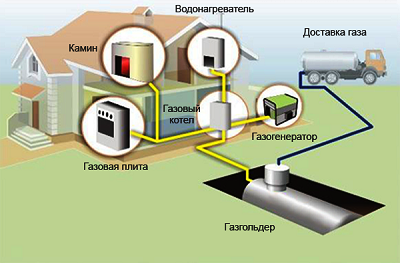
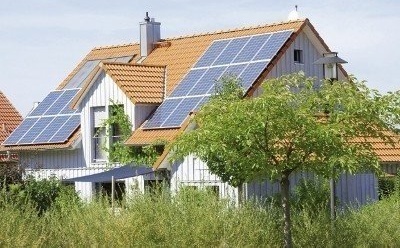
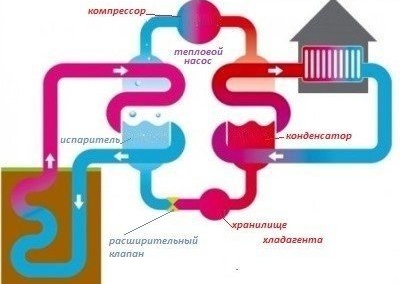
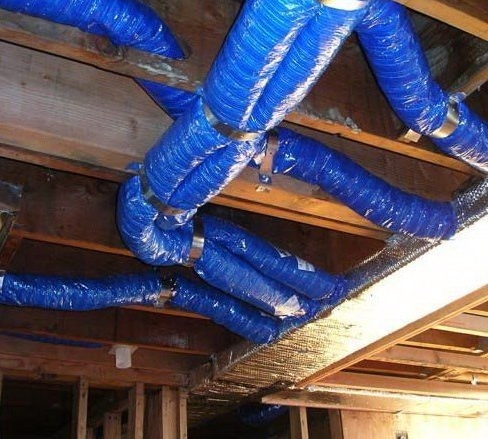
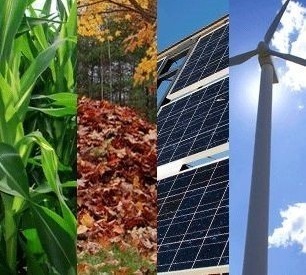
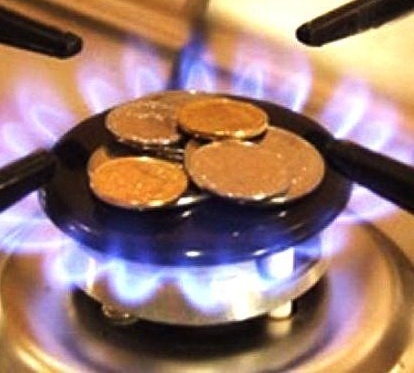
11 comments